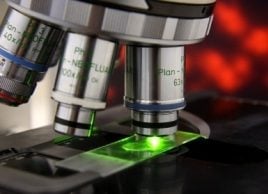Anaemia (Iron-Deficiency)
Iron-deficiency anaemia is the most common form of the disorder. It is caused by a shortage of iron in the blood.

Source: Adapted from Family Medical Adviser, Reader’s Digest
What is anaemia?
Iron-deficiency anaemia is the most common form of the disorder. It is caused by a shortage of iron in the blood. This prevents the bone marrow from making enough haemoglobin, the oxygen-carrying pigment in red blood cells ‘ with the result that the body does not get enough oxygen. Anaemia persists until treated unless the cause is temporary, in which case the body will slowly build up the deficit. Depending on the cause, the condition could be corrected within three to six weeks of starting treatment. The person may then need to take an iron supplement for six months.
Who is at risk for anaemia?
Iron-deficiency anaemia is caused by:
‘ Loss of blood due to heavy periods.
‘ Excessive bleeding resulting from an accident or due to surgery.
‘ A diet deficient in iron.
‘ Pregnancy, which increases the body’s need for iron.
‘ Poor absorption of iron from the diet, usually due to surgical removal of part of the stomach, or to celiac disease.
‘ Diseases in which there is persistent bleeding, such as gastritis, peptic ulcer, bowel disorders including bowel cancer, haemorrhoids (piles) and urinary tract infections.
In addition to the symptoms common to all types of anaemia, people with the iron-deficient form suffer from dry, brittle nails and a sore tongue and mouth. In very severe cases, heart failure and edema may occur.
Treatment for anaemia
Seek medical advice if any of the above symptoms develop. A doctor may:
‘ Carry out tests to measure the level of iron in the blood and the number of red blood cells.
‘ Investigate any underlying cause of the symptoms, for example, using endoscopy or barium X-rays to check for digestive tract disorders.
‘ If the diagnosis is confirmed, prescribe iron-supplement tablets, drugs that control excessive menstrual bleeding or give iron by injection.
Lifestyle changes
Eat plenty of iron-rich foods such as lean meat, green vegetables, wholemeal bread, pulses, eggs and dried fruits. Avoid drinking tea with meals, since this can inhibit the absorption of iron from food.




